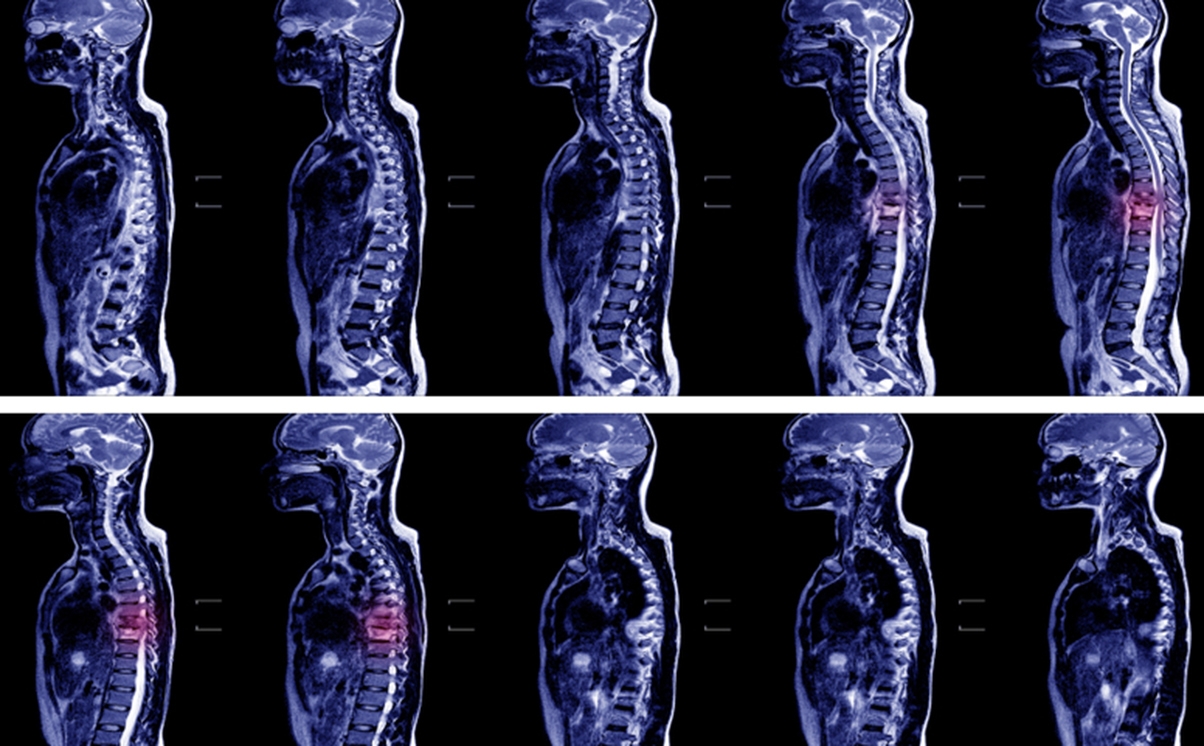Before her injury, M worked as an NHS nurse in a specialist rehabilitation unit. M had always loved her job and took great pride in helping her patients make the best recovery possible. As well as working full time, M had a busy home life raising her three daughters with her partner.
Treatment
In August 2013, M had an abnormal smear test result. She underwent an excision, a large loop excision of the transformation zone (LLETZ) procedure, and the results were reported in December 2013 as completely excised. Following a normal smear test in 2014, M was advised to return to regular three-yearly cervical screening appointments.
From 2016 onwards, M began to notice changes in her monthly cycle and was experiencing heavier, more painful and longer periods. M was also experiencing episodes of extreme pelvic pain, for which she attended A&E on numerous occasions.
These symptoms persisted, and following a referral from her GP, an ultrasound was undertaken at a gynaecology outpatients’ department at M’s local hospital on 1 June 2016. The scan showed an enlarged uterus, and the working diagnosis was endometriosis.
M’s condition deteriorated further, and by December 2016 it was noted at a follow-up appointment that M was experiencing urinary urgency and frequency along with a change in bowel habits. M was referred for urodynamic investigations, and despite voiding dysfunction being reported, M was discharged from the clinic in July 2017.
In March 2017, M met with a consultant obstetrician and gynaecologist and was added to the waiting list for laparoscopy and endometrial ablation. M was informed that she would require a smear test prior to this procedure, and this occurred on 29 March 2017. The sample was reported as inadequate.
In the subsequent months, M’s symptoms became increasingly worse, and she attended the gynaecology department to enquire about the laparoscopy. She was advised that they would not be able to provide a date for surgery until September 2017. In September, she was provided with a surgery date of 21 November 2017. Due to her menstrual cycle, the surgery was rearranged to 27 February 2018, some 11 months after being first listed.
In November and December 2017, M attended A&E on two occasions complaining of pelvic pain.
M was again referred to her GP to request an ultrasound scan despite already being under the care of the gynaecology team. There was a further delay in reviewing the scan. However, once the scan was reviewed, M’s surgery was brought forward. M underwent a laparoscopy and hysteroscopy on 29 December 2017. During the operation, a smear and tissue biopsy were also taken, which later revealed squamous cell carcinoma.
Diagnosis
There are different stage descriptions for different types of cancer. For cervical cancer, the staging system developed by the International Federation of Obstetrics and Gynecology, or FIGO is used. M was diagnosed with FIGO stage 4B squamous cell carcinoma. Investigations confirmed the presence of a large tumour centred on the cervix, with involvement of pelvic lymph nodes, and a separate tumour in the rectum. There were also chest lymph nodes and two lung nodules, which were positive for squamous cancer. M had chemotherapy and radiotherapy, which were completed in 2018.
Sadly, the delay in the diagnosis of cervical cancer led to a terminal diagnosis with an initial expert opinion obtained in April 2019 giving a life expectancy of just 18 months
In 2019, M began an immunotherapy trial which has been effective in stabilising her cancer.
Legal case
The case was taken on by Stewarts in 2018 and resolved in 2020 under the conduct of Amy Heath, Senior Associate.
Expert evidence was obtained, and numerous breaches of duty were identified between November 2013 and December 2017. These failings were further supported by the defendant trust’s own internal review.
The allegations against the defendant trust were as follows:
Breach of duty
- Failure to adequately interpret and report the biopsy of December 2013. A small focus of invasive tumour and lymphovascular invasions were missed by the reporting pathologist.
- The incorrect assertion that excision of cervical intra-epithelial neoplasia 3 (CIN3) was complete.
- Failure to properly report the cervical smear of March 2017. Although originally reported as inadequate, there were abnormal cells in the sample. Therefore, a report of “high-grade dyskaryosis” or “invasive squamous carcinoma” should have been given.
- There was a delay in listing M for surgery until 21 November 2017.
Causation
- But for the delay in diagnosis, M would have proceeded to treatment in 2013/2014 for a stage 1a1 cervical cancer. This is easily cured, with minimal side effects, and she would have been free of cervical cancer following treatment.
A letter of claim was served on the defendant on 27 November 2018, setting out the above allegations. The defendant served a letter of response on 9 May 2019 admitting liability.
Settlement
Following receipt of the letter of response, the parties agreed that they would value the case with a view to entering into settlement negotiations as soon as possible. M had decided that she wished to deal with the litigation in her lifetime and, therefore, the focus was on achieving a successful settlement as quickly as possible. This would give her peace of mind that the claim had been resolved for her family.
On 27 April 2020, a settlement meeting was held via Zoom with counsel, Laura Begley of 9 Gough Square, representing M.
Apology from the trust
The trust began the meeting by offering an apology to M. M had previously expressed that she was concerned that the apology received had only focused on the earliest alleged breach when, in fact, there were multiple errors throughout her treatment, which she did not wish to happen to anyone else. Counsel ensured that this message was conveyed to the trust at the meeting.
Barriers to settlement
The main areas of disagreement between the parties were loss of earnings, loss of services and accommodation.
Loss of earnings
It was clear from M’s employment records and a witness statement obtained from the divisional head of nursing that she was an exemplary employee with a bright future. However, there was a dispute in relation to which promotion band M would have reached during her career and by which date. The loss of chance percentages applied to the potential promotions were also disputed.
Accommodation
A claim for the extension and adaption of M’s home had been advanced as her home would not be suitable for her in the last stages of her illness. It was extremely important to M that she remained in the family home for her end of life care. The defendant did not allow any claim for accommodation due to M’s predicted life expectancy and issues surrounding planning permission.
Loss of services
The defendant did not allow any claim for loss of services during M’s lost years, arguing that this could only form part of a Fatal Accidents Act claim. This had a significant impact on the value of the claim. The claimant argued that if an allowance could not be made for this head of loss, then the matter would proceed and the practical likelihood was that it would become a Fatal Accidents Act claim and would therefore be included.
Although a settlement could not be achieved on the day, the parties reached an agreement shortly afterwards and the claim settled for £1.2m.
M is now able to use this money to ensure that her young family are provided for in the future. Having recently been granted planning permission, the adaptations to her home will also shortly be underway, which will ensure that M has the end of life care she wishes to have.
Testimonial from M
M said of Stewarts: “I was very impressed with the level of professionalism and legal expertise provided by Stewarts throughout the entire process. I found them to be extremely knowledgeable and reassuring, especially at a time when I felt overwhelmed by a diagnosis and prognosis of advanced incurable cancer along with concerns for my family and their future.
“I was confident that I could speak to and get a very timely response from my solicitor at Stewarts at any time in clarifying/answering any queries along with updates/progression of my case. They also ensured that they recruited outstanding expert witnesses required for my specific needs.
“I am thoroughly satisfied with the service I have received from Stewarts from beginning to end. They are an exceptional law firm, and I would not hesitate to recommend them to anyone who requires a clinical negligence litigation specialist.
“The settlement I have received with Stewarts’ help has enabled me to provide a financial future for my partner and my children, and for that, I am truly grateful.”
You can find further information regarding our expertise, experience and team on our Clinical Negligence page.
If you require assistance from our team, please contact us or alternatively request a call back from one of our lawyers by submitting this form.
Subscribe – In order to receive our news straight to your inbox, subscribe here. Our newsletters are sent no more than once a month.






